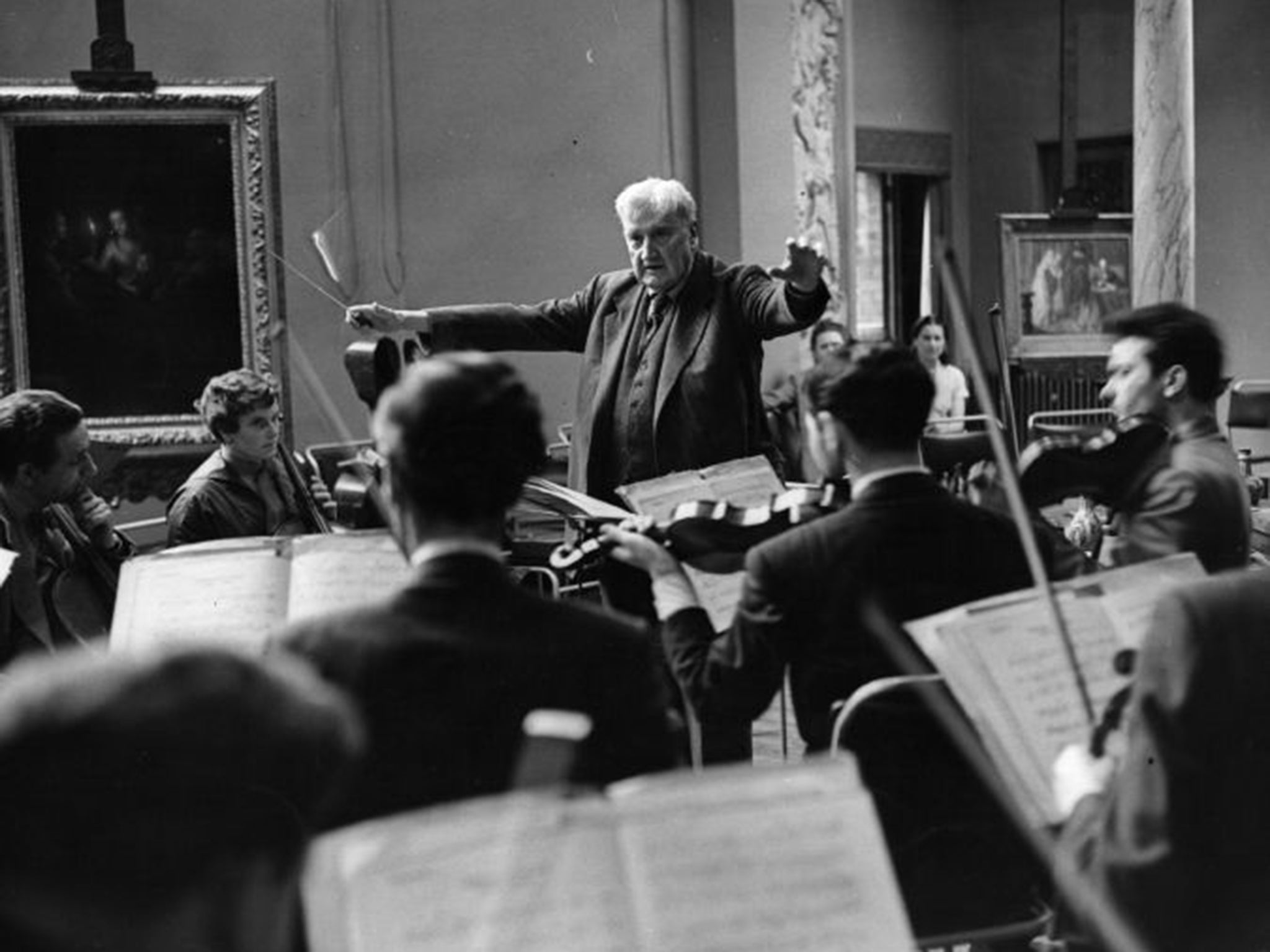Keith Alldritt , Vaughan Williams: Composer, Radical, Patriot – A Biography: 'A new life of Ralph Vaughan Williams leaves many questions unanswered', book review
'Although his passion was evident even at prep school, he was a late developer'

Your support helps us to tell the story
From reproductive rights to climate change to Big Tech, The Independent is on the ground when the story is developing. Whether it's investigating the financials of Elon Musk's pro-Trump PAC or producing our latest documentary, 'The A Word', which shines a light on the American women fighting for reproductive rights, we know how important it is to parse out the facts from the messaging.
At such a critical moment in US history, we need reporters on the ground. Your donation allows us to keep sending journalists to speak to both sides of the story.
The Independent is trusted by Americans across the entire political spectrum. And unlike many other quality news outlets, we choose not to lock Americans out of our reporting and analysis with paywalls. We believe quality journalism should be available to everyone, paid for by those who can afford it.
Your support makes all the difference.Ralph vaughan williams is the quintessential English composer. This year, his “Lark Ascending” was voted No 1 in the Classic FM Hall of Fame. His name conjures up images of the countryside, of tweedy decency, of tradition. However, both the man and the music were more complex than his popular reputation – or indeed this new biography – suggests.
Vaughan Williams was born into the late Victorian intellectual aristocracy “with a very small silver spoon in my mouth”. A scion of the Darwin-Wedgwood dynasty, he inherited both a modest private income and a profound work ethic, which together enabled him to devote himself to “absolute musical integrity”, as a contemporary put it.
Although his passion was evident even at prep school, he was a late developer. His cousin Gwen Raverat recalled her elders discussing “that foolish young man Ralph Vaughan Williams who would go on working at music when he was so hopelessly bad at it”. Doubts as to his aptitude were compounded by distrust of the status of music as a profession.
High society patrons continued to relegate minstrels to the servants’ hall well into the 20th century. When Vaughan Williams conducted one of his pieces at a grand house in Park Lane in 1912, he himself was invited to join the guests, but the band was shown downstairs; he boldly led them into the main salon to find the champagne. Both social and intellectual snobbery were rife in the mindset he inherited. He initially recoiled at the “village organist” vulgarity of Verdi’s Requiem, before growing to admire it.
His openness to popular forms, from folk music to hymns, had more of a radical edge in its day than it might seem now. His commitment to what we would now call “outreach”, via local churches and music societies, was based in a deeply democratic sensibility.
Tramping the villages of England with a phonograph to collect traditional songs, Vaughan Williams was in the vanguard of early 20th-century British ethnomusicology, but he also had links with many European composers from Ravel to Janacek. One hankers after a broader cultural analysis to explain the international context.
Why do we today revere Stravinsky’s folk-inspired “Rite of Spring” while laughing at Cecil Sharp’s Morris dancers? How does Vaughan Williams’s pastoral fit in? On Wenlock Edge, his searing and ambiguous setting of AE Housman’s text, seems to me much darker, more problematic, and more sophisticated than this book suggests.
Indeed, Keith Alldritt tends to push the more disturbing aspects of the story to the edges throughout. This is especially so when it comes to the knotty tale of Vaughan Williams’s marriage to Virginia Woolf’s cousin Adeline, a pre-Raphaelite beauty with an “Olympian and mysterious” look.
Their union lasted 53 years, and yet they appear to have been semi-estranged for most of it. Early on, she absented herself to care for her mentally ill brother; she was later crippled by arthritis.
Whether or not Vaughan Williams had other affairs is not explored, but in his late sixties he fell in love with Ursula, then a drama student of 27. He was particularly taken with her stockings, which left him “agog”; she wrote him a love poem invoking hosiery brand names.
A ménage à trois resulted in which Ursula shared a bedroom with Ralph and Adeline, a fact which is mentioned as a mere aside here, but which surely deserves more psychological delving. After Adeline’s death in 1951, Ursula married Ralph, remaining his devoted assistant and becoming the keeper of his flame after he died in 1958.
This new book offers a solid, detailed chronology to add to Ursula’s 1964 biography of her husband, but it leaves many questions of interpretation, whether of the life or of the music, unanswered. It invokes a subtext of suffering which it does not fully unearth.
Vaughan Williams: Composer, Radical, Patriot – A Biography, by Keith Alldritt (Hale, £25). Order at the discounted price of £22.50 inc. p&p from the Independent Bookshop
Join our commenting forum
Join thought-provoking conversations, follow other Independent readers and see their replies
Comments